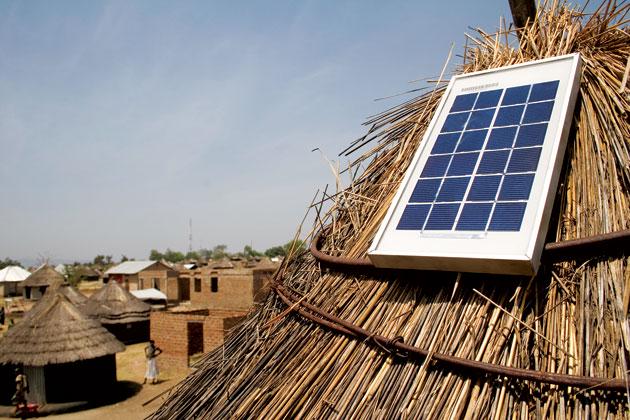African politicians have joined with international business leaders to launch the Energy Africa campaign, in order to bring solar power to their country, where 620 million residents still don’t have electricity.
Currently, two-thirds of the African population do not have access to electricity, and this number is increasing.
However, this energy crisis leaves huge room for renewable energy opportunities.
International business leaders such as Richard Branson, Kofi Annan and Bob Geldof have joined with 14 African countries for the launch of a global solar campaign, Energy Africa, aiming to give the continent solar power.
With the decrease in the price of solar energy, opportunities are arising for businesses and the government to provide millions of households with access to small-scale off-grid systems that are affordable.
The Africa Progress Panel chairman and previously UN secretary general Kofi Annan stated that having no access to electricity is _“an injustice that robs millions of our fellow citizens of the dignity, opportunity and freedom that comes with access to modern energy,” _and that the Energy Africa campaign will address this issue.
_“At present rates of progress, 300 million people in Africa will still lack electricity by 2040. This is intolerable, avoidable and profoundly unfair,” _he said.
The recently published Africa Progress Panel report has estimated that approximately 138 million households live on under $2.50 each day, and $10bn each year is spent on products related to energy, such as candles, kerosene and charcoal.
On a per-unit basis cost, these poor households pay 60-80 per cent more for energy than London or Manhattan residents.
“It leaves the world’s poorest people to pay the world’s highest prices for power. Households are losing out as a result of higher prices, investors are losing out on market opportunities and countries are losing out from failure to harness productive technologies and broaden their development base,” Annan reiterated.
Sierra Leone and Nigeria have already signed with Britain in order to speed up the process of powering households with off-grid solar.
12 more countries are expected to follow and soon join the Energy Africa alliance.
Energy Africa aims to deliver aid in a new way, and it is about more than having lights to turn on- it means that the people are not limited by the dark, and that power is no longer a luxury.
Yemi Osinbajo, the Nigerian vice-president credits the possibility of this to the plunge in solar power costs.
_“Nigeria has 96 million people without access to electricity. Most use kerosene. The default energy source should be solar. That was not available 10 years ago. Now it is,” _he said.
The increasing availability of mobile phones has also contributed to Africa’s access to renewable energy sources such as solar.
Even remote communities will be able to pay for solar electricity thanks to mobile phones, according to Bob Geldof.
_ “We needed technologies to exist before you could electrify a continent and with the advent of this thing we all have in our pocket it makes this doable. This is the moment when Africa switches on, powers up and goes for it,” _Mr Geldof said.
Mr Branson plans to invest in multiple solar project within Africa, as he has also done in Caribbean countries.
He says that access to renewable energy sources in countries ravaged by energy poverty can increase opportunities in education, entrepreneurship and the empowerment of women.
Mr Branson also believes solar will eventually take off all around the world.
_“I feel strongly that universal access to clean, renewable sources of energy can be achieved in our lifetime – even in this generation,” _he said.
Africa already has a off-grid solar industry ready to take off, all that’s missing is the technical and financial support to make it possible.
This support is not just good for Africa, but also climate change.
Africa’s energy poverty is resulting in forest destruction in order to produce charcoal for increasing urban communities, and less trees equals less carbon.
An African energy revolution is needed, and hopefully this solar campaign is successful in starting one.
Photo courtesy of Azuri Technologies



